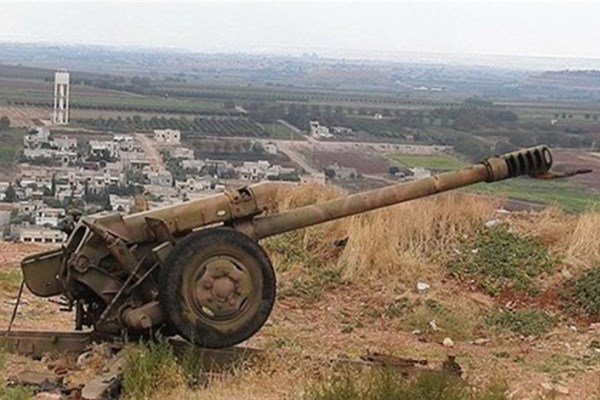Turkey fails to comply with all its obligations in Idlib

TEHRAN - Idlib is the only province of Syria to remain completely outside government control and has been dominated by Hayat Tahrir al-Sham, the modern successor to Nusra Front. The domination of the Syrian army in Syria now means the end of the war ultimately and this will lead to opportunities for political changes in the country.
On September 17, 2018, in the Russian city of Sochi, Turkish President Recep Tayyip Erdogan and Russian President Vladimir Putin agreed to create a buffer zone between Syria's rebels and pro-government forces. At the meeting, Russian President Vladimir Putin considered his Turkish counterpart's comments about preventing humanitarian disasters and human rights violation given the ever-increasing number of Syrian refugees. Putin took charge of a plan to discourage Syrian leaders from using the military operations to clear Idlib of terrorists.
President Putin said that a buffer zone would be 15 to 25 kilometers wide and come into force by October 15. In line with the agreement, Putin convinced the Syrian president to accept the Sochi agreement, concluded between Russia and Turkey. Iran and Russia are major allies of Syrian President Bashar al-Assad.
Surprisingly, the Sochi agreement was actively adopted by Western countries, which had previously expressed grave concerns about the human rights situation in Idlib.
The West, especially Washington, London and Paris, which are in direct contact with the anti-Syrian government groups in Idlib, had been obviously indifferent to the situation faced by civilians in Idlib.
The Syrian Foreign Ministry has generally described the operations carried out by United States-led coalition forces as crimes against humanity and genocide. Much Syria was destroyed and hundreds of thousands have died. In Idlib, it seemed at first that the agreement reached in Sochi between Moscow and Ankara could improve the situation. But with the expiration of a deadline for Turkey to negotiate with the so-called intermediate opponents of Assad, Ankara failed to fulfill its obligations.
Analysts believe that Ankara deliberately neglected the issue of the withdrawal of the armed forces against Assad, in order to use them as a “trump card” for their policy. Erdogan also seems to be adopting a double standard with Russia, Iran and Syria on the one hand, and with the West, especially the United States, on the other. The lack of progress in the implementation of the agreements reached in Sochi between Turkey and Russia, which will aggravate and complicate the day-to-day management of the situation in Idlib.
Lieutenant General Vladimir Savchenko, head of the Russian center for reconciliation of conflicting sides in Syria, said: “Despite the ceasefire agreement, illegal armed groups operating in the Idlib de-escalation zone keep violating it.”
Russian Foreign Ministry Spokesperson Maria Zakharova said on Nov. 16, 2018 that Turkey's attempt to disperse terrorists have more or less failed. She added: “In recent days, Syrian government forces have limited the moves that have been made by the Jabhat al-Nusra forces from the province of Idlib to the Aleppo area, but so-called moderate forces have contributed to the terrorists in these movements.”
Such direct remarks by the spokesman of the Russian Foreign Ministry indicate that the patience of Moscow, Tehran and Damascus is wearing thin over the issue of the terrorists based in Idlib.
Earlier, the leaders of Turkey, Russia, France and Germany met at a summit hosting by Ankara to try to find a political solution to Syria’s devastating civil war, and to provide access to humanitarian aid and salvage a fragile ceasefire in the country’s last major rebel-held bastion. The Russian president noted that the creation of the buffer zone in Idlib is a temporary solution, and if the terrorist armed forces do not adhere to this agreement and continue military operations, Russia will have the right to respond fully.
right to full control of the counter-terrorism of the Syrian
Currently, given the failures to comply with all the agreements at Sochi, further delay Idlib’s liberation will decrease Syrian military clout, and the radical anti-government forces and terrorists will have more time to rebuild. It is time the terrorists were dealt with and a comprehensive political agreement takes shape to resolve Syrian problems.
